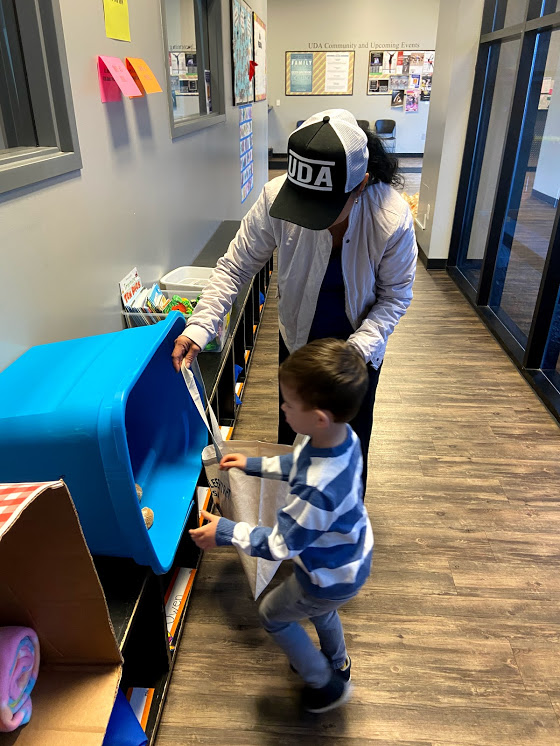Your preschooler definitely isn’t selfish. She was born with an ability and desire to care about others.
But that doesn’t mean she always acts in compassionate ways.
And that’s okay! Learning the character trait of compassion takes time. Just as in everything else, we learn compassion little by little. And just as in everything else we’re trying to teach our children, us adults are still developing the skill of compassion as we go!
So be patient. Realize there will be bumps along the way. Your child may be compassionate in one instance, but not another. They may need to be taught different elements of compassion again and again.
Use these tips to teach compassion to your preschooler and keep it at the forefront of your child’s life.
Give Compassion to Your Child
One of the most important things you can do to teach compassion to your preschooler is to give compassion to him. If he experiences it himself, he’ll want others to as well. Plus, he’ll know how to be compassionate, having already experienced it.
When your child is hurt, sad, or sick, be compassionate. Tell them you’re sorry they’re not feeling well, and give them affection and care. Take them seriously. If they’re bothered by something, don’t tell them they shouldn’t be. Show them empathy in even the smallest of situations, and they’ll understand compassion more fully.
Trust That Your Child Can Be Compassionate
Believe that your child is kind. Believe that your child is not malicious.
Remove words from your vocabulary that assign moralistic failure. Your child isn’t selfish or rude if they don’t want to share toys or comfort a sad child. They’re developing skills, and don’t yet know how to react in all situations. Trust that they’ll get there, and always believe that they are good.
Assume your child wants to be kind to others, rather than thinking your child is a bully, selfish, or unkind. If they’re behaving in a way that you perceive as selfish, ask yourself, “What skill are they lacking?” Then, focus on teaching them the skill, not criticizing them for selfishness.
Know they can do this, and they will.
Treat Your Child with Respect
It’s easy to get into command mode as a parent. We’re responsible for teaching, protecting, feeding, clothing, and caring for our children. That’s a lot! And sometimes, that means you have to tell your child to stop watching a show and put their shoes on.
But make sure you do this respectfully.
You wouldn’t abruptly and harshly end a lunch date with your friend without warning, so don’t abruptly end your time at the park with your child. Be respectful and compassionate as you move throughout your day.
If your friend was crying, you wouldn’t tell her to stop. You’d comfort her. Speak kindly to your child, and be respectful when they struggle.
Model Compassion
Live a compassionate life. Your children learn from watching your behavior.
If you are treated rudely by a cashier, model compassion by not being snarky back to them. Later, show compassion in how you discuss the cashier. “I wonder if he was having a bad day today.”
When someone needs your help, offer it, even if it is inconvenient. It’s important for children to see you care about people at all times. Teach them that any time is the right time to be compassionate.
Volunteer your time formally with an organization if you can. If you can bring your child along without disrupting the help you’re there to provide, do so!
Talk About Compassion
Teach your preschooler compassion by naming it. Explain what it is, so your child recognizes compassion when she sees it.
Give your child examples of compassion that are meaningful to their stage of life.
For example, you can talk about being kind to siblings and looking for ways to help at home.
You can talk about ways they can be compassionate in the neighborhood — keeping their eye out for elderly neighbors, picking up trash, putting out bird feeders, and noticing when someone seems sad.
At school, they can be compassionate by sharing their toys, being respectful and taking turns, and comforting a sad friend.
Point It Out
When your child sees examples of compassion, it will be easier to understand the concept. As you watch shows and read books together, point out compassionate characters. Likewise, when someone isn’t being treated compassionately in a show or book, point it out. Notice the character’s face and say, “I think she feels sad about the way her friend talked to her. What do you think?
Out in the world, point out when someone is kind to you. If someone lets you in their lane, say, “That sure was nice, wasn’t it?” When your elderly grandparent tells you someone shoveled their walk or raked their leaves, tell your children about the kind deed. When your child comforts their baby sibling, say, “That was very compassionate of you.”
Volunteer
Look for age-appropriate opportunities to volunteer in your community. This will help your child get in the habit of thinking compassionately about what others need.
At UDA Creative Arts Preschool, we help teach compassion by participating in Project Sleep Tight. Our students bring in donations of blankets, stuffed animals, and books to share with children who are homeless. As we assemble the kits, we have some of our most meaningful conversations with the children. They really think about what it means to be someone else and how to help others. At this age, they feel compassion without even trying, and the project helps solidify that strength they already have.
Your child can also give away toys and clothing, write letters, visit people who are lonely, make cookies for a neighbor, get the mail for an elderly neighbor, and more.
To learn more about UDA Creative Arts Preschool in Draper, Utah, contact us online or give us a call at (801) 523-5930.




